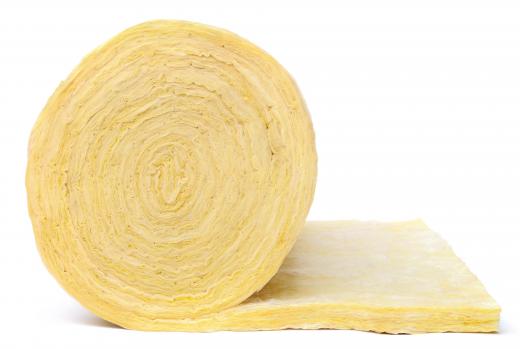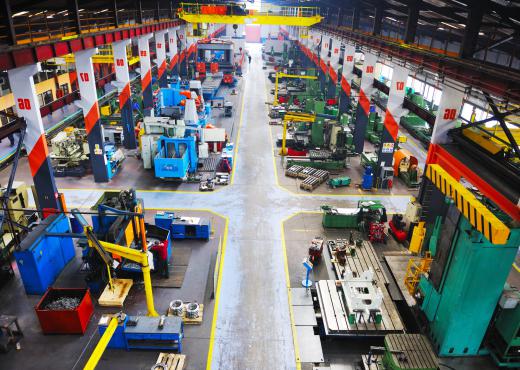Insulation manufacturing is the process of producing insulation products for construction, vehicles, and other settings where insulation is necessary for safety, operating efficiency, and comfort. Insulation comes in a wide variety of forms, from tiles on spacecraft to protect the hull during re-entry to wrappers for pipes that will be exposed to extremely cold weather. Companies that manufacture insulation products usually focus on a particular market, such as insulation for construction, vehicles, agricultural purposes, or other activities.
In insulation manufacturing, companies take materials with high insulating values and transform them into a format usable for insulation, such as panels, slabs, sheets, or blow-in products. This can also involve making synthetic products to meet insulation needs. Fiberglass, rock wool, recycled cellulose, and a variety of other raw materials are useful for insulation, depending on the level of protection necessary. Some insulations prevent fires by isolating very hot areas, others may be useful for temperature control in structures, and some products prevent freezing.

Companies in this industry tend to maintain labs where they research and develop new products. This process includes coming up with new insulation formats and testing products to see if they will be effective in extreme environments. For insulation manufacturing companies with government contracts, this can include sensitive work like developing insulation to prevent fires in military aircraft, or creating supplies for polar exploration. Personnel at these companies may need to pass background checks before they can work with government products.

Demand for insulation remains highly consistent, as it is necessary for new construction as well as retrofitting. Insulation manufacturing is usually a year-round business. During slow sales seasons, companies can build up stocks for when demand starts to rise again; home construction, for example, is usually limited to the fair months of the year, and thus insulation demand may be low in winter, but high in late spring, summer, and early fall.
Careers in insulation manufacturing can include positions for line workers, researchers, advertising personnel, safety supervisors, and accounting staffs. Skilled professionals with experience in the industry may be able to negotiate better pay and benefits, particularly with a job offer from a rival company to use for leverage. Individuals who want to enter the industry may have an advantage if they have experience or educational qualifications in construction, engineering, and related fields, as they can apply their work experience to new product development, testing, and quality control.
Ever since she began contributing to the site several years ago, Mary has embraced the exciting challenge of being a About Mechanics researcher and writer. Mary has a liberal arts degree from Goddard College and spends her free time reading, cooking, and exploring the great outdoors.

